About
Gonzaga’s Jesuit, Catholic, Humanistic education will challenge and inspire you.
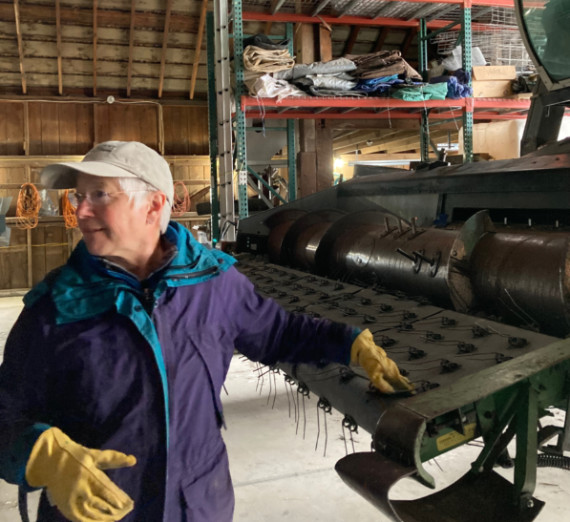
Thorn Creek Native Seed Farm is in the Palouse region near Genesee, Idaho. The owners of Thorn Creek Native Seed Farm, Jacie and Wayne Jensen, have been growing wheat on their farm but also taking care of their land that had never been farmed and was rich with native Palouse plant species. When they realized that restoration and conservation of Palouse Prairie requires the availability of native seeds, they decided to tackle that problem with Thorn Creek Native Seed Farm. After 18 years Jacie and Wayne have sold their farm to Joe and Mary Hein. Rose Creek Seed is carrying on the tradition of growing native seed from the Palouse. Their website is at rosecreekseed.com
The Seeds For The Future students conducting research at Gonzaga University and University of Idaho in Summer 2022 were able to visit the farm on May 26, 2022, and discuss their research projects with Jacie.
Grow Plots: This was the first field trip with students from both Gonzaga University and the University of Idaho. We arrived at the farm in the late morning during a late spring rainstorm. We were greeted by Jacie, then current owner, and introduced to Mary, future owner. First, we visited grow plots of several native forb plant species; forbs are herbaceous flowering plants that are not grasses. There were quite a few rows of native plants, looking healthy and filling out quite nicely. The plants we saw were perennials. A drip irrigation watering system can be seen with the black tubing on the ground.
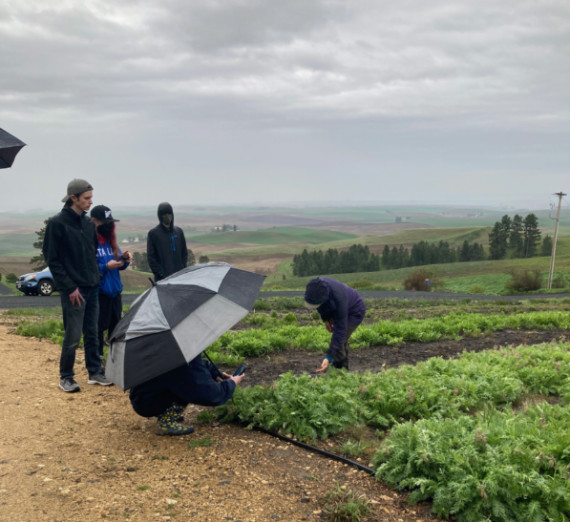
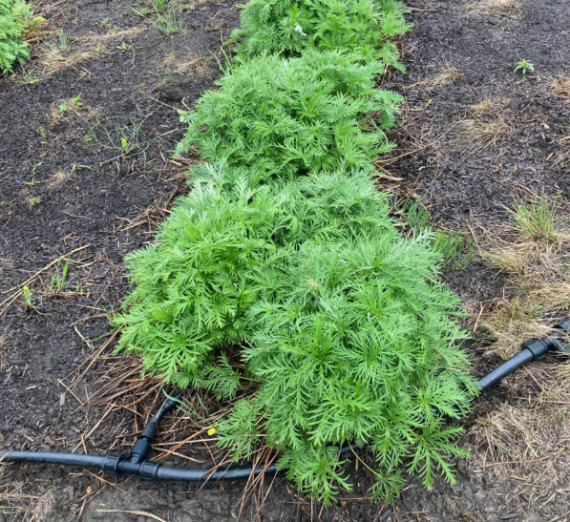
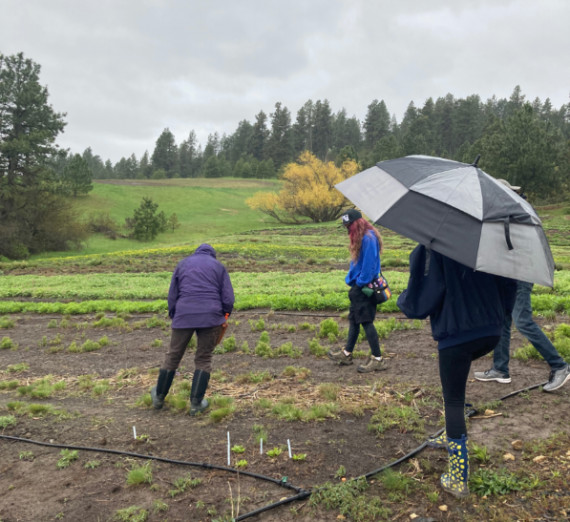
Seed Biology: During lunch, we talked about seeds. Jacie had a variety of cleaned native seed samples for us to look at. We talked about various seed cleaning protocols and what seed certification. The purpose of seed certification is to preserve genetic purity and to ensure correct species identity. The requirements for producing certified seed include special land requirements, planting eligible stock, field inspections, proper seed labeling and meeting standards based on lab seed analysis. Jacie stressed the importance of knowing the pure seed number when purchasing seed, so you are not paying for stems, leaves, or weed seeds when buying your seed. Jacie compared a seed to “a baby in a box with its lunch”. The seed coat is the box. The seed embryo is the baby. And the lunch is the cotyledons or endosperm, depending on the species. If you don’t know what cotyledons or endosperm are, then just consider them the food store. Seeds have everything they need to become a full plant!
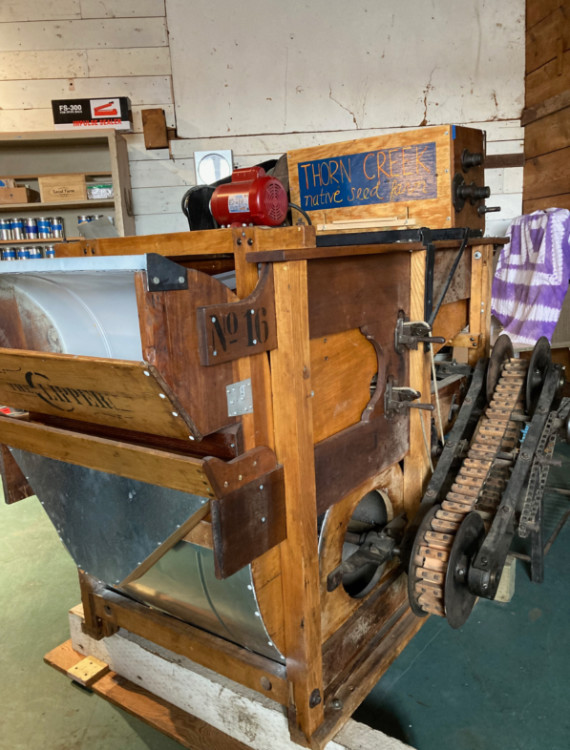
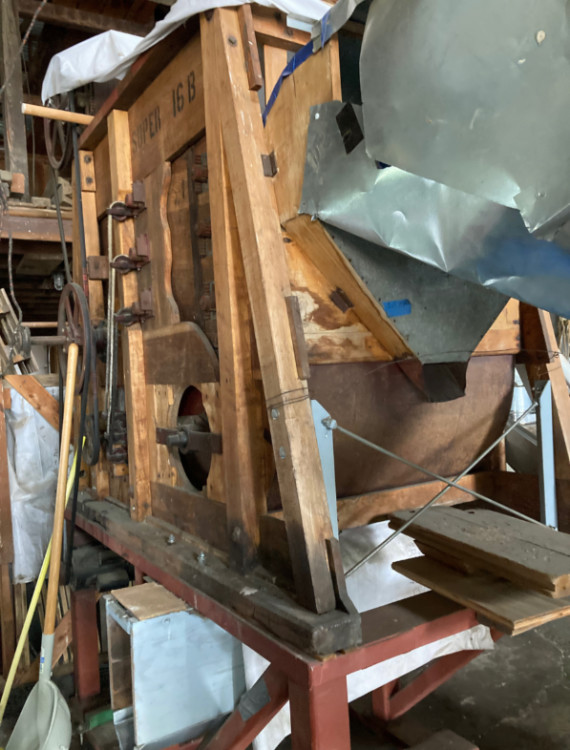
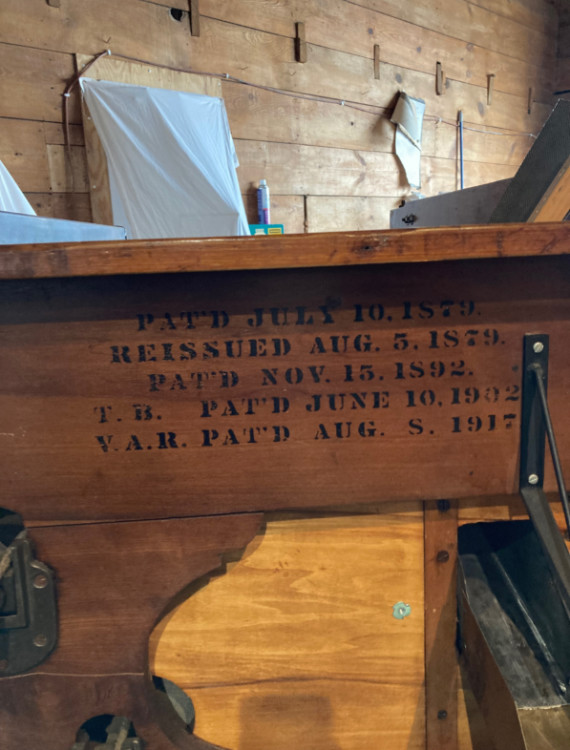
Seed Cleaning: The farm has some very old seed cleaning equipment, including a manual sieve. Some of it still works today. We also saw the storage area, which stored the wide diversity of native seed species grown on the farm.
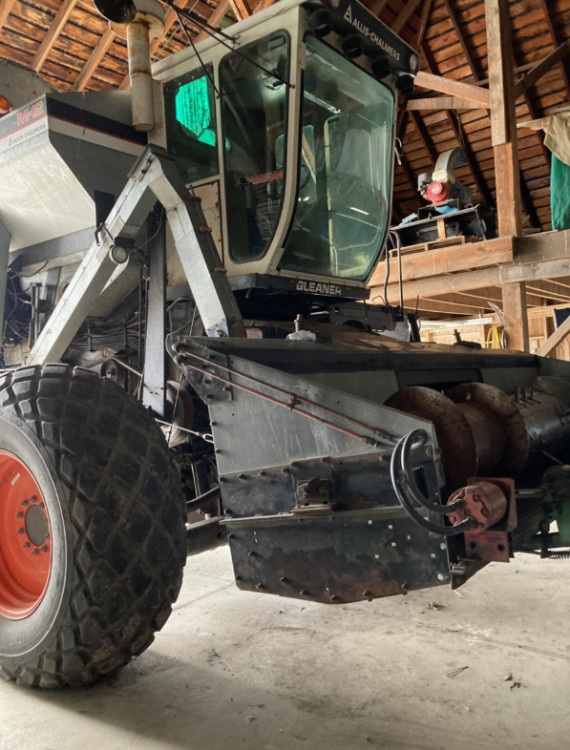
Harvesting equipment: We also saw their wheat harvesting equipment. It was interesting to see the evolution of technology to harvest a crop. Some of the equipment was patented in the 19th century. They owned some gigantic tractors, equipped with massive harvesting equipment. One tractor has huge tires that were about 4 feet tall!
At the end of our tour, we got to see the cultivator used to plant wheat seeds at the start of the season. It was impressive to see the efficiency in which its design would allow opening the earth, planting a seed, and resealing the earth. This really showed how much research has gone into farming practices.
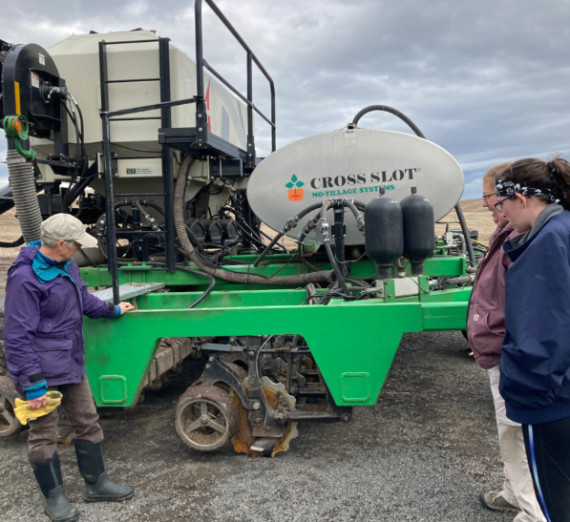
The farm is currently hiring workers to collect seeds in the wild in the Palouse region and Inland Northwest. These collections are needed to update the genetics of the farmed native plant species.
We hope that our seed research can help these native seeds establish in reclamation and restoration projects by identifying beneficial microbes that can add in seed germination and seedling establishment.